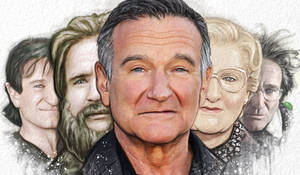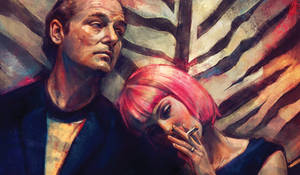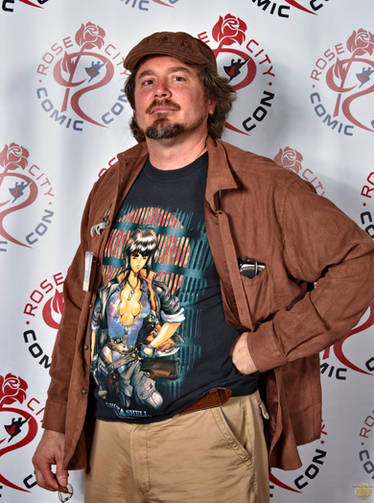
April 28, 1948 — March 12, 2015
Terry Pratchett, the immensely popular British fantasy writer best known for his “Discworld” sci-fi/fantasy series, has died from a dementia and Alzheimer’s-related brain “embuggerance” (his term for it) at the relatively young age of 66. One of today’s most prolific authors (70 titles), he was Britain’s bestselling author of the 1990s, usurped shortly thereafter only by J.K. Rowling’s “Harry Potter” phenomenon.
Labeling Pratchett as a science-fiction or fantasy writer is a bit inaccurate. He was a social satirist and quite comical, more akin to Jonathan Swift and Mark Twain, a Kurt Vonnegut with a dose of Monty Python. It’s remarkable how little known he was in America, but this is explained by American sci-fi and fantasy fans preferring Star Wars-type action heroes to the adventuring “thinkers” beloved by the Brits, like “Doctor Who.”
Pratchett’s major triumph was his long-running “Discworld” series of novels. The Discworld is literally a flat plate of a planet balanced on the backs of four elephants, the elephants standing on an immense turtle’s shell. Being able to whimsically set a story on a world as our world was once imagined by early “flat Earth” “astronomers,” and deftly make such a fatally-encumbered narrative work quite successfully and believably is proof of Pratchett’s incredible talent as a writer. His was another case of an amazing talent who could have easily written books for the world of “serious literature,” but chose instead the fantasy genre as a better platform with its 360-degree crow’s-nest view of the world below – which he enjoyed picking apart with his satirical jabs and illuminating observations.
Novelist A.S. Byatt (Booker Prize winner; named by Times of London as one of 50 greatest post-WWII British writers) bemoaned how much attention the “Harry Potter” books were receiving as compared to other fantasists. “They do not review the great Terry Pratchett, whose wit is metaphysical, who creates an energetic and lively secondary world, who has a multifarious genius for strong parody as opposed to derivative manipulation of past motifs, who deals with death with startling originality. Who writes amazing sentences.”
Discworld grew into about 40 volumes, the follies of its politicians and others often mirroring those suffering similar serious ensnarlments in our own world. They are rightly ridiculed and dismissed to the dustbins of historical footnotes by Pratchett’s wicked wit and razor-sharp pen. Of the many wizards and witches and trolls who have come to populate the Discworld over the years, no single character has become more emblematic of the Pratchett wit as DEATH HIMSELF. Pratchett often donned the mantle of his popular character as a kind of alter ego. Death is endlessly fascinated by the machinations and pretensions of humans, and Pratchett obviously enjoyed freeing himself to better “see” the humanity he satirized through Death’s unique POV.
Pratchett became “Sir Terry” upon being knighted by Queen Elizabeth II in 2009.
In 2010 he was granted his own official Coat of Arms. He then decided that if he were to be a knight he needed a proper sword. Sir Terry dug 81 kilograms of iron ore deposits out of the ground in a field not far from his Wiltshire home. He smelted the iron in his own kiln built of clay and hay. He added a secret wizardly ingredient, of course. “Several pieces of meteorites – thunderbolt iron, you see – highly magical. You’ve got to chuck that stuff in whether you believe in it or not.” A local blacksmith shaped the sword, finishing it with silverwork. Sir Terry then put it in hiding, like “Excalibur.”
Prachett’s mockery of philosophy and philosophers did not prevent the recent publication by two such gentlemen as an appreciation of all the thoughtful observations on life he’s offered his readers through the years. (“Philosophy and Terry Pratchett,” by professors of philosophy and Discworld fans, James South and Jacob Held.) A typical philosophical deconstruction by Sir Terry: “His philosophy was a mixture of three famous schools – the Cynics, the Stoics and the Epicureans – and he summed up all three of them in his famous phrase, ‘You can’t trust any bugger further than you can throw him, and there’s nothing you can do about it, so let’s have a drink.’”
Pratchett’s death was announced on his Twitter account with three brief tweets:
AT LAST, SIR TERRY, WE MUST WALK TOGETHER.
Terry took Death’s arm and followed him through the doors on to the black desert under the endless night.
<da:widget wytiwyg="1" type="twitter.timeline" value="{'id':'576524536524378112', 'count':'1'}">
Featured Gallery
Your Thoughts
- Have you read any Terry Pratchett stories? Do you like satire to be an element in works of fantasy, or do you find it collapsing of your suspension of disbelief?
- Do you like to discover wildly talented writers you hadn’t been aware of, or do you fear you’ll never have the time to read all the books by the wildly talented writers you already enjoy – so what’s the point of adding to the frustration?
























































